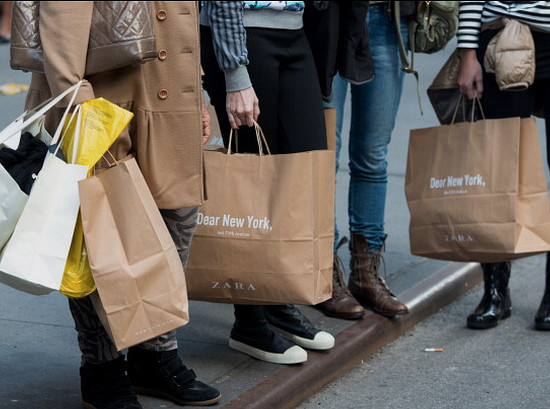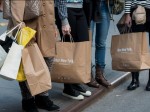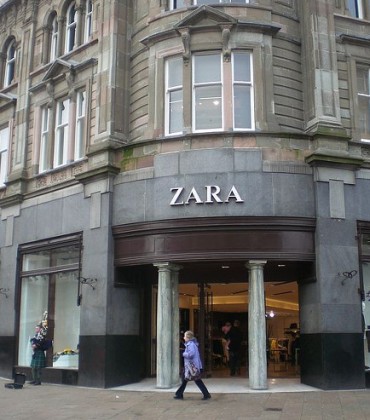
(Bloomberg / Getty Images)
According to a new report by the Center for Popular Democracy, employees at international fast fashion house Zara, are regularly instructed to discriminate against black shoppers.
The report, which surveyed a number of current employees, also reported discriminatory hiring practices within the company, stating that “Darker-skinned employees report that they are least likely to be promoted” and “Employees of color state that they are reviewed with harsher scrutiny from management than white American and European employees.”
From the report:
Of those who responded, 46 percent noted that Black customers were called special orders “Always” or “Often,” compared to 14 percent regarding Latino customers and only 7 percent for white customers. The majority of employees believe that Black customers are coded as potential thieves at a higher rate than white customers. Additionally, 36.4 percent of employees surveyed believe that Black and Latino customers are discriminated against at a higher rate than white customers. Employees stated that special orders are identified by “dressing a certain way” and are “mostly African-American.” Special orders were also defined as “Anyone who looks Black, not put together or urban.”
Zara, which is currently currently fighting a discrimination lawsuit brought on by the corporation’s former U.S. general counsel, vehemently denied the claims.
In a statement to Refinery29, which first reported the story,
“Zara USA vehemently refutes the claims contained in the Center for Popular Democracy report, which was prepared with ulterior motives and not because of any actual discrimination or mistreatment. It fails to follow an acceptable methodology for the conduct of a credible objective survey on workplace practices, and instead appears to have taken an approach to achieve a predetermined result, which was to discredit Zara.”
News of the report has spurred a larger conversation about racial discrimination in retail, with commenters and shoppers chiming in with their personal experiences.


